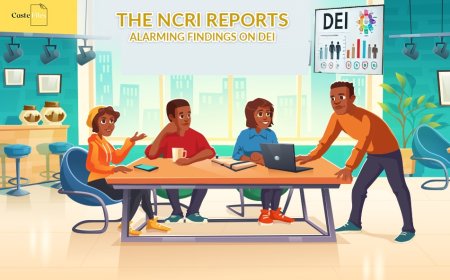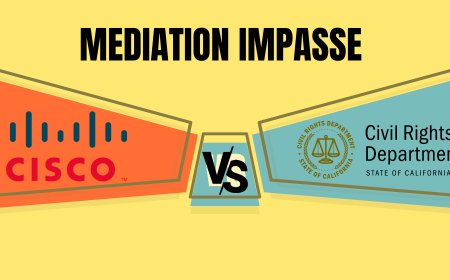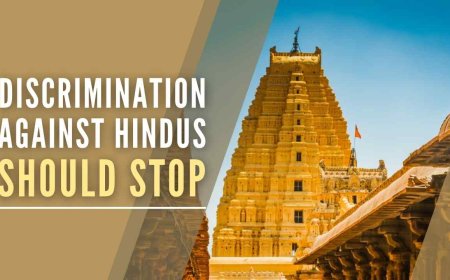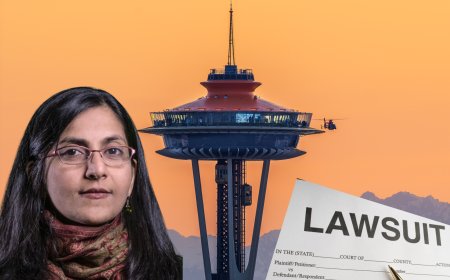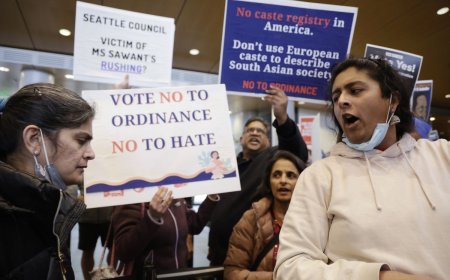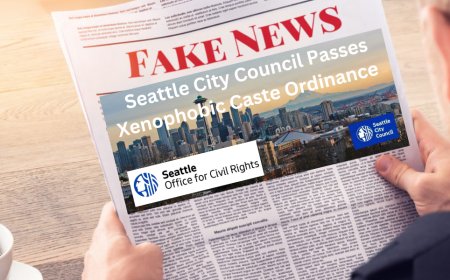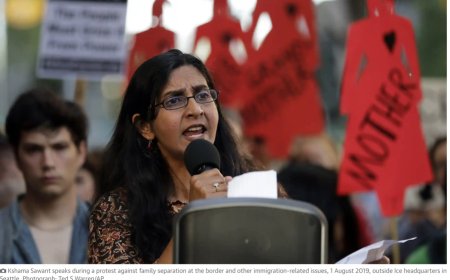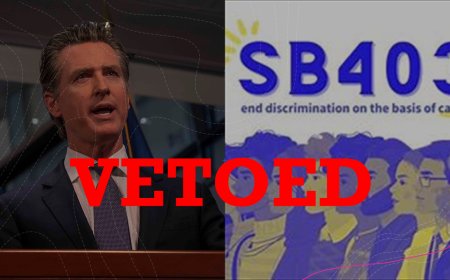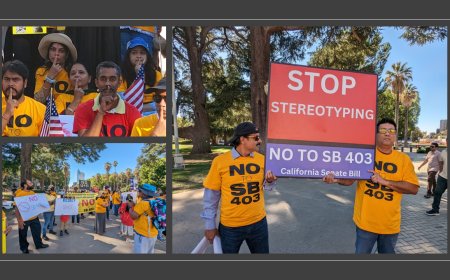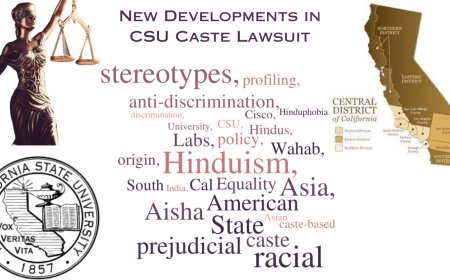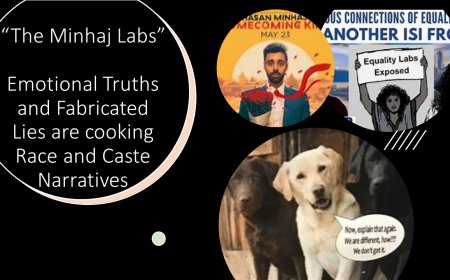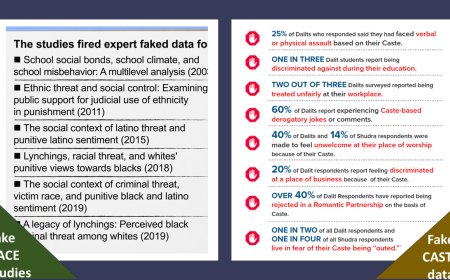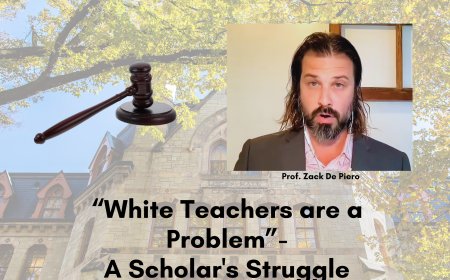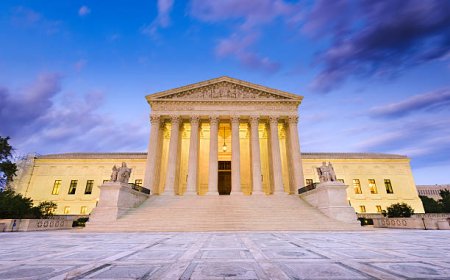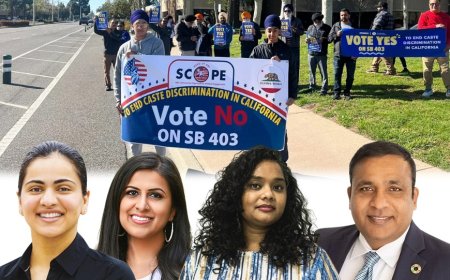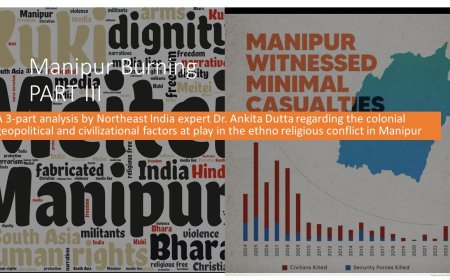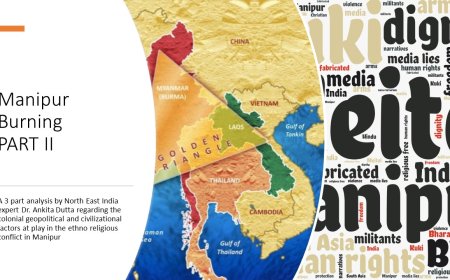12 Reasons to Oppose Seattle's Discriminatory Caste Ordinance

By Richa Gautam
1) The ordinance is superfluous and redundant
The ordinance is redundant as current laws cover for all forms of discrimination and anything supplementary would be a waste of city resources and valuable time that could be spent to solve real problems in Seattle.
2) It is a violation of the Civil Rights Act of 1964
The Caste ordinance is unprecedented in its attempt to single out one demographic group of immigrant South Asians and label them as extraordinarily discriminatory. Without a doubt, such tags will bring disrepute to South Asians as a whole, divide the community and result in result in ethnic profiling. This is a violation of the Civil Rights Act of 1964.
3) It violates the Establishment Clause of the US Constitution and First Amendment Rights
It is unconstitutional and violates the fundamental religious rights of Hindu Americans as it attempts to define Hinduism and Caste as an embedment within the religion when Hindus are in vehement disagreement with this notion. This is a violation of the Establishment Clause of the US Constitution and of First Amendment rights.
4) It uses faulty data from Equality labs, an openly Hindu hating and India baiting organization
The ordinance indulges in selective usage of the Equality Labs survey results. The survey methodology is highly unscientific and consequently has resulted in biased and faulty reportage. The entire Equality Labs report contains anonymous anecdotes that are themselves discriminatory, calling people names for being vegetarians or for their choice of spouse. This is only the tip of the iceberg as Equality Labs directors are well known to have tweeted extremely Hinduphobic and hate-filled messages regarding Hindu festivals like Diwali, Holi and of Hinduism itself. Such people have no right to define our religion and this fake data from a private body should NEVER be quoted in a democratic country. In fact, Equality Labs should be held accountable for their unsociable behavior on social media.
5) It ignores data from a reputed survey house that indicates that Caste is a non-issue in the US
The Carnegie Endowment Institute of International Peace, the University of Pennsylvania and the John Hopkins Institute of Advanced International Studies have come together to study Indian American attitudes and found Caste discrimination to be an insignificant factor in the US, with a sample so small that it was rendered statistically unmeasurable.
The Carnegie Endowment survey also found a high degree of dilution of Caste identity among diaspora Hindus. 46% of people surveyed did not answer the questions on Caste identity. Among those that answered, less than half were aware of their caste identity, and of those born in the US, only one third knew about their caste identity. These numbers clearly state that Indian Americans who are less prone to even knowing their caste are the least of all to practice discrimination based on Caste.
6) It cites allegations as facts from the sub-judice Cisco case and stereotypes an entire community
The ordinance specifically refers to the Cisco Caste Case. The Cisco case is still under trial, and it is ironic that a legal document should quote a sub-judice case, attempting to pass allegations as facts. Not only is this case still under trial, but the defendants have also filed a motion for sanction which is now a public document. A whistleblower website Castegate.org quotes at least 26 egregious, unlawful and fabricated allegations and facts in the case, showing that the case is flimsy and questionable in its validity.
The Hindu American Foundation (HAF) has filed a motion to intervene in layman’s terms, and to ensure that one case does not define the entire community. HAF has filed a case against Kevin Kish for wrongly tying Hindu beliefs and practices to Caste discrimination and for violating the of First Amendment rights of Hindu Americans. This is a denial of due process and equal protection while targeting Hindu Americans for their religion and national origin.
The ordinance is trying to take one case and bring it to the fore to stereotype the entire Indian American community in the USA. This will only bring Seattle into disrepute and will result in a legal quagmire.
7) Caste is not defined in US laws and adding it will be illegal anyway
In the Indian Constitution, Caste was defined pre-independence with the help of rigorous census exercises of the entire population by classifying entire populations of India and the local non-hierarchical and horizontal Jaati clusters into hierarchical Caste definitions. Yet, each of the 30 states has separate laws related to each of these classes. Caste cannot be interpreted by Seattle without such a census exercise. When such Census was conducted by Risley and Hunter in the 1800s and 1930s, they used scientific racism and classification by nasal measurement and skin color which are both illegal today. Is the Seattle City Council willing to conduct such an exercise?
8) Caste is a colonial trope, an N word for aware Indians and is not a Hindu word but Portuguese
Dalit and Caste are both terms that were invented under British Jurisdiction.
India was a country with one of the highest GDPs in the world before colonization. As with any rich country, it was powered by the well-to-do large Indian middle class which later transformed into today’s Dalits due to the horrors of the extraction economy, debilitating taxes, and man-made famines.
Caste is the N-word for Hindus and invokes the shame of phrases like “Indians and dogs not allowed.” There was no mention of Brahmins or Dalits as all Indians were discriminated against and viewed and treated as slaves under British colonial rule.
9) Not a single Caste discrimination case has been filed in Seattle jurisdiction.
Despite caste resolutions filed around the country in universities, not a single case has been registered, say in Brandeis University for example which included Caste policy four years ago in 2014.
On the other hand, a focus group study at Brandeis conducted by a research group two years ago has shown that there is a rising uneasiness among students of South Asian descent and a feeling of non-inclusivity. “Just put your head down and study and stop sending your children to this university in the future,” said one mom.
10) Our Voice was canceled during public comments on 14th February
About 45 Indian Americans tried to join in on February 14 to air their concerns in the public comments. Only 3 of them got to speak and we request time to air our concerns.
11) Dalit and Bahujan Groups and leaders are opposed to Sawant representing them
At least one Dalit group and many Dalits have expressed their concerns that Kshama Sawant and her cronies who talk about discrimination in India, do not represent the voice of the entire Dalit Bahujan population in the US. It is imperative that the council members give time to opposing voices and listen to all points of view.
Overall, about 70-plus Hindu Organizations have opposed this ordinance and over a 1,000 Hindus have signed CoHNA’s letter opposing this ordinance showing widespread disagreement with Kshama Sawant.
12) Caste legislation is Anti-Business and Anti-Capitalism and Anti-American Values
Kshama Sawant is well known for her anti-business and anti-India stances.
Her Caste legislation will hurt American businesses where Indian Americans are a bulwark and power every sector whether tech, finance, pharma, or space research. This Caste legislation will hurt American businesses the most in Seattle and in the US.
This is a concern for Hindu Americans beyond Seattle as false resolutions like the anti-CAA resolution of March 2020 had a snowball effect. After Seattle passed a token resolution against a humane Indian law for refugees (CAA), it spiraled into a US wide phenomenon with 7 cities passing such resolutions or proclamations until Chicago gave us time to explain the real import of the CAA and said NO to the agenda driven resolution.
We request City Councilors to cease and desist, and stop this ordinance, say no to an illegal action by Kshama Sawant, stop targeting human rights of Hindu Americans and bring back the city’s focus on important local issues that will use city resources to help the people of the city of Seattle.
In any case, we request time to discuss this matter with representation from the Seattle Hindus who are feeling targeted and with the national organizations that have come together to oppose this ordinance in large numbers.
Thank you for your time.
Regards,
Richa Gautam



